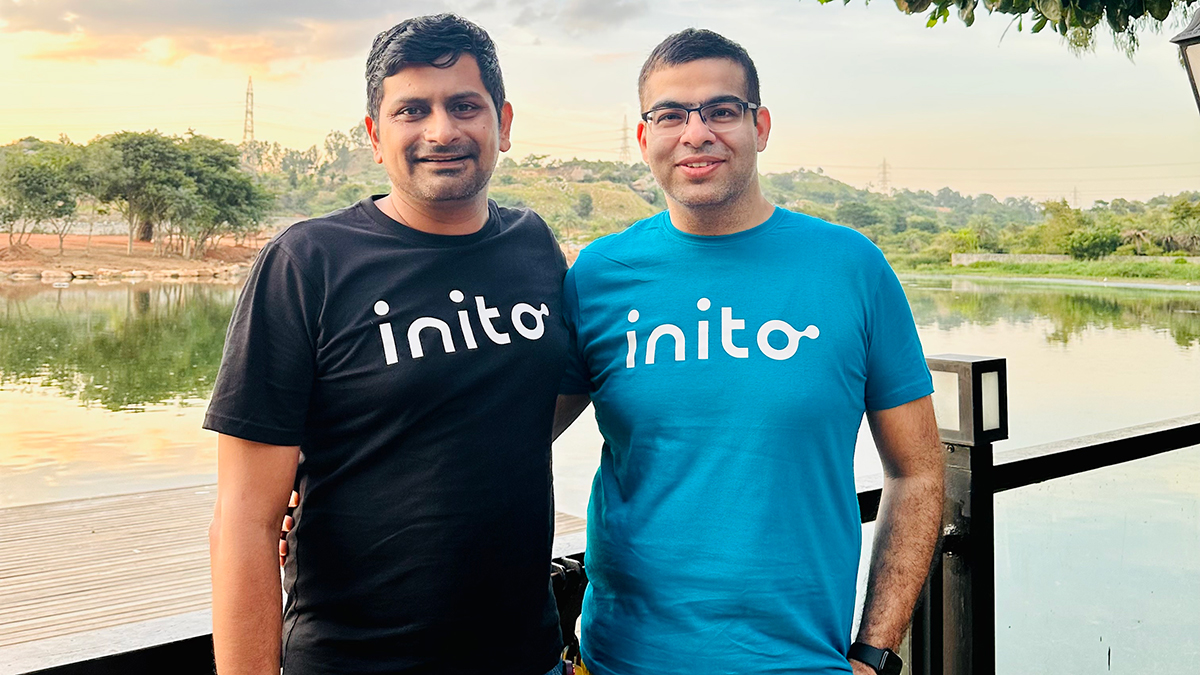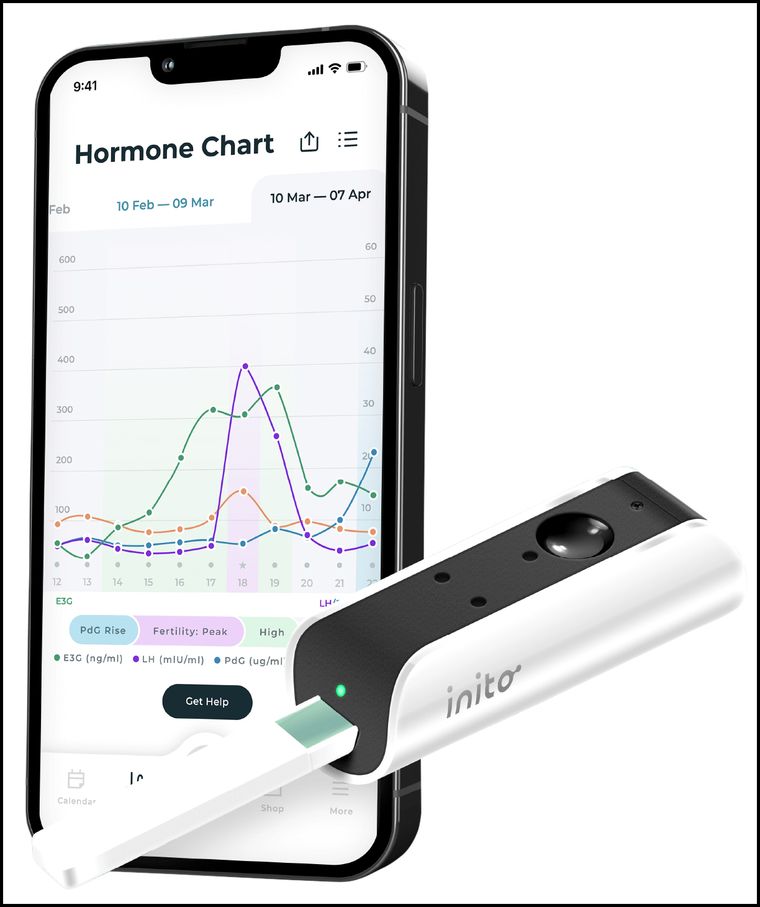As they paddled through the water on a kayak during an adventure trip, Aayush Rai and Varun A.V. had a conversation that changed everything. "We were working for Siemens, which is a large med-tech company, and it became clear they wouldn’t sell anything for less than a few crores,” Rai recalls. “That was when we realised if we wanted to create something genuinely impactful, we'd have to do it ourselves. So we decided to leave our jobs and build something of our own."
The result was Inito, a health-tech startup which introduced the world’s first―and still the only―fertility monitor. It is capable of measuring all four fertility hormones on a single test strip.
In November 2020, this monitor―a compact device that enables smartphones to perform lab-grade fertility diagnostic tests at home―earned regulatory approval from the US Food and Drug Administration.
Inito's vision, however, goes beyond fertility. “We are here to build tools that allow individuals to understand what is happening in their body,” says Rai. “Our core vision is to create a device or platform that lets you perform dozens of diagnostic tests at home, giving you access to your own data. Fertility is just the starting point of that journey.”
At Siemens, Rai and Varun―both IIT alumni―worked in the R&D centre, which tackled a wide range of projects. After leaving Siemens, they did not want to work on another mundane project; they wanted to create solutions for tough problems. “Med-tech appealed to us because it truly impacts people’s lives, and we are seeing that impact now,” says Rai. They chose fertility as the opening point because of its significance and it was an underserved issue that people did not talk about enough. “Yes, India is the most populous country, but India also has the largest number of couples with fertility issues,” he says. Notably, the company drew its name from the Latin phrase Ab initio, which means 'from the beginning', reflecting how their application supports millions in the journey of creating new lives.
When Rai and Varun set out to develop their product, most ovulation tests on the market predicted fertile days by tracking oestrogen and Luteinizing Hormone (LH). However, they did not measure the hormone that actually confirms ovulation―PdG, the urine metabolite of progesterone. Also, most tests provided simple “yes/no” results. In contrast, Inito offers real numerical values for fertility hormones and tracks up to six fertile days, confirming ovulation by measuring oestrogen (which rises 3-4 days before ovulation), LH (which surges 24-36 hours before), PdG (which rises after ovulation), and FSH (to track follicle growth).
By measuring these real values, Inito personalises the results for each user. “So, the way to think about this is as a combination of a device, test strips (where biochemical reactions occur), and an app,” says Rai. “You put a sample on the test strip―currently, it is a urine sample―and then insert it into the device. The device analyses your hormones, and the software tracks the data trends to help interpret the results. That is the core model we have built. We have completed nearly 10 million tests, and we now hold the largest fertility hormone dataset globally, which helps people understand their results more accurately.”
The application has a precise sensor and a software layer powered by AI. “This AI helps identify errors, for example, if a user did not apply the sample correctly. Another way AI works is by analysing hormone trends and explaining to the user what the results mean―for instance, if someone did not ovulate in a cycle, we can inform them of that by looking at hormone patterns,” says Rai.
Last November, Inito raised $6 million and it is working on taking the fundamental tech applied in its fertility monitor and translating it into numerous other tests. For instance, it is building a test that helps track the progress of pregnancy. It is also working on tests for thyroid, Vitamin D and hormone levels. “There is no home-based test that can tell if your pregnancy is going well,” explains Rai. “Similarly, no home-based tests exist for vitamin D or male hormones. So, we are talking about things that are non-existent.”
Inito has set its sights on expanding to 100 countries shortly. Currently, the app is available only for iPhone users; it will soon be available to Android users.
The company’s primary source of talent is India’s premier technological institutions. Rai was a founding member of the robotics club and head of the electronics club during his student days at IIT Roorkee. “I didn’t attend many classes, but this is what I was doing for four or five years. These clubs might seem like just student groups, but many big companies have emerged from them,” he says.
Inito’s early recruits came from the networks Rai and Varun built during their college years, and many of them now hold key positions at the company. “For example, the person who leads our bioinformatics domain is a junior from my college,” says Rai. The head of biotech was hired on reference by a professor from IIT Madras, where Varun did his B.Tech and M.Tech.
India has not produced many global companies in med-tech, historically. However, innovators like Rai and Varun are working to change that, creating Indian solutions for global health problems, one step at a time.



